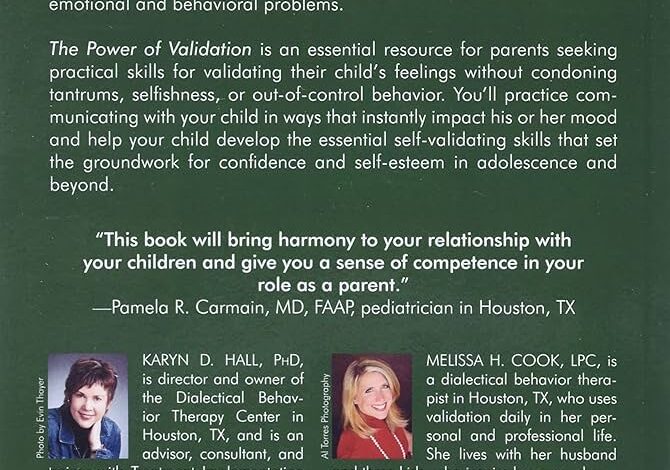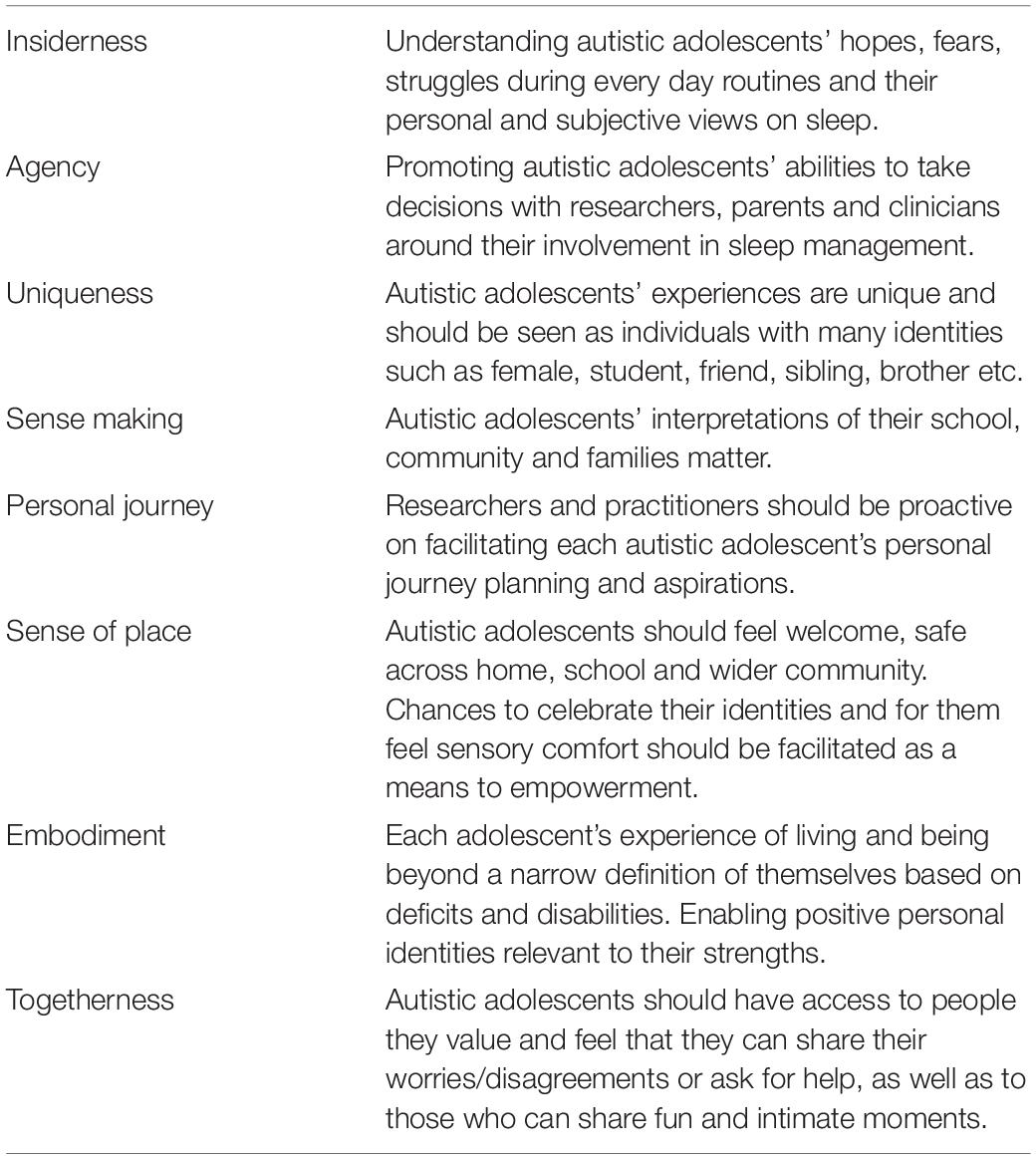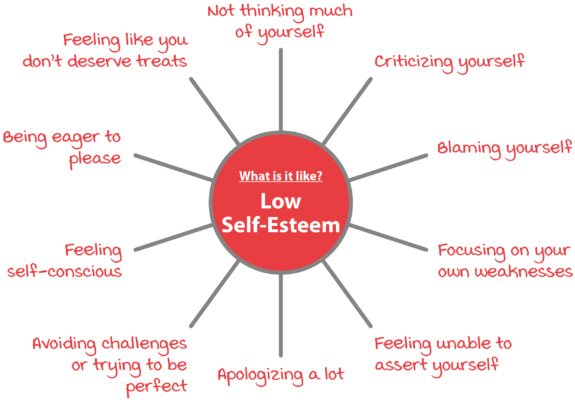How Can Health Professionals Help Adolescents Feel a Sense of Worth?

Health professionals can help adolescents feel a sense of worth by actively listening and offering genuine support. Encouraging open communication also fosters trust and self-esteem.
Adolescence is a critical period for developing self-worth and identity. Health professionals play a crucial role in guiding teenagers through these formative years. By actively listening, they show that adolescents’ feelings and experiences matter. Offering genuine support and encouragement helps build trust.
Open communication fosters a safe environment where teens feel valued and understood. This supportive approach can significantly impact their mental and emotional well-being. Adolescents who feel heard and appreciated are more likely to develop a strong sense of self-worth. Empowering them during this stage sets a positive foundation for their future. Health professionals’ involvement is essential in nurturing confident and resilient young individuals.
Building Trust
Building trust is crucial in helping adolescents feel valued. Health professionals play a vital role in establishing this trust. They can create environments where teens feel safe and respected.
Creating Safe Spaces
Adolescents need safe spaces to express themselves. Health professionals should provide private and confidential settings. This helps teens feel secure in sharing their thoughts and feelings.
| Do’s | Don’ts |
|---|---|
| Ensure confidentiality | Share their information without consent |
| Offer a non-judgmental attitude | Criticize or judge |
| Create a welcoming environment | Make them feel unwelcome |
Active Listening
Active listening is essential for building trust. Health professionals should focus entirely on the adolescent during conversations. This shows that they genuinely care about what the teen is saying.
- Maintain eye contact
- Nod to show understanding
- Repeat back what they hear
Active listening helps adolescents feel heard and understood. This can increase their sense of worth and confidence.
:max_bytes(150000):strip_icc()/why-it-s-important-to-have-high-self-esteem-5094127_final2-44f1b62b7f7d4329af70bc09c1f2ee2d.png)
Credit: www.verywellmind.com
Encouraging Self-expression
Adolescents often struggle with self-worth. Health professionals play a key role in helping them. Encouraging self-expression can be a powerful tool. It allows teens to communicate their thoughts and emotions. This process can be therapeutic and empowering.
Art Therapy
Art therapy uses creativity to help adolescents express feelings. It can be drawing, painting, or sculpture. Creating art can be a release for bottled-up emotions. It helps adolescents process difficult experiences.
Health professionals can guide teens through these activities. They provide a safe space for expression. This process can boost self-esteem. It allows teens to see their thoughts in a visual form. They feel understood and valued.
| Benefits of Art Therapy |
|---|
| Enhances emotional well-being |
| Improves self-awareness |
| Reduces stress |
| Fosters creativity |
Journaling Techniques
Journaling is another effective way for teens to express themselves. Writing thoughts and feelings can be very freeing. It helps adolescents organize their emotions. Journaling can be done in various ways.
- Daily entries
- Gratitude lists
- Poetry
- Storytelling
Health professionals can introduce different journaling techniques. They can suggest prompts to get teens started. This helps teens reflect on their experiences. It builds a habit of self-expression.
Journaling also provides a private space for thoughts. Teens can write without fear of judgment. This practice can be very empowering. It helps them feel heard and valued, even if it’s just by themselves.
Promoting Physical Health
Physical health is key for adolescents. It helps them feel valued. Health professionals play a big role here. They can guide and support teens to stay fit. Two main areas to focus on are exercise programs and nutrition guidance.
Exercise Programs
Regular exercise boosts self-esteem in teens. Health professionals can create fun exercise programs. These can include:
- Group sports like soccer or basketball
- Individual activities like running or swimming
- Fitness classes such as yoga or dance
Encourage teens to stay active every day. Offer a variety of options. Make sure they enjoy the activities. This helps them feel good about themselves.
Nutrition Guidance
Good nutrition is crucial for teen health. Health professionals can offer simple, clear advice. They can teach teens about:
- Balanced diets
- Healthy snacks
- Importance of hydration
Use easy-to-understand terms. Create colorful charts or tables to show food groups. Help teens make better food choices. This boosts their sense of worth and physical health.

Credit: www.frontiersin.org
Mental Health Support
Adolescents often face many challenges that affect their mental health. Health professionals play a vital role in helping them feel valued. Providing mental health support can make a significant difference in their lives. Here are some effective ways professionals can offer support.
Counseling Services
Counseling services provide a safe space for adolescents to express their feelings. Trained counselors listen and offer guidance. This helps young people feel heard and understood. Regular sessions can build trust and improve self-esteem.
Some benefits of counseling include:
- Improved emotional regulation
- Better coping strategies
- Increased resilience
Counselors also work with families to create a supportive home environment. This holistic approach ensures better outcomes for adolescents.
Mindfulness Practices
Mindfulness practices teach adolescents to stay present and focused. These practices can reduce stress and anxiety. Health professionals can introduce techniques such as:
- Deep breathing exercises
- Guided meditation
- Progressive muscle relaxation
Incorporating these practices into daily routines can have lasting benefits. Adolescents learn to manage their emotions and feel more in control.
A table of common mindfulness practices and their benefits:
| Practice | Benefit |
|---|---|
| Deep Breathing | Reduces stress |
| Guided Meditation | Increases focus |
| Progressive Muscle Relaxation | Relieves tension |
These practices are simple yet effective. They empower adolescents to take charge of their mental health.
Educational Workshops
Adolescents often struggle with feelings of worth and self-esteem. Educational workshops can offer valuable support. These workshops can teach them vital skills. They can guide them on their future careers. Health professionals can play a crucial role in organizing and facilitating these workshops. Below are some key areas where these workshops can make a significant impact.
Life Skills Training
Life skills training is essential for adolescents. It helps them navigate daily challenges. These workshops can cover a range of topics. Topics such as:
- Communication Skills
- Time Management
- Conflict Resolution
- Financial Literacy
These skills are crucial for personal development. They can boost an adolescent’s confidence. This can lead to a stronger sense of self-worth. Health professionals can teach these skills in interactive and engaging ways. Activities like role-playing and group discussions can make learning more effective.
Career Counseling
Career counseling workshops can guide adolescents on their future paths. These workshops can help them identify their strengths. They can also match these strengths to potential careers. Health professionals can assist by providing:
- Aptitude Tests
- Career Pathways Information
- Interview Preparation Tips
- Resume Writing Workshops
These activities can help adolescents set realistic goals. They can also help them build a roadmap to achieve these goals. This can significantly enhance their sense of worth and direction in life.
By offering these educational workshops, health professionals can profoundly impact an adolescent’s life. These workshops equip them with essential skills. They also guide them toward a fulfilling career path. This support can help them feel valued and capable.
Community Engagement
Community engagement can play a significant role in helping adolescents feel a sense of worth. Health professionals can foster this engagement by creating opportunities for teens to connect with their community, build relationships, and develop a sense of belonging. This section will explore two key areas: Volunteering Opportunities and Group Activities.
Volunteering Opportunities
Volunteering allows adolescents to contribute positively to society. It helps them see the impact of their actions. Health professionals can organize various volunteering events. These can include:
- Helping at local shelters
- Assisting in community gardens
- Participating in environmental clean-ups
These activities help teens develop empathy and responsibility. They feel valued when they see their work making a difference.
Group Activities
Group activities foster teamwork and social skills. Adolescents can join clubs or teams that interest them. Health professionals can encourage participation in:
- Sports teams
- Art or music groups
- Debate clubs
These activities help adolescents build friendships and trust. They gain confidence by achieving goals together.
Health professionals can also create safe spaces for group discussions. Here, teens can share their feelings and experiences. This builds a supportive community where everyone feels heard and valued.
Parental Involvement
In adolescent health, parental involvement is crucial. Parents play a key role in helping teens feel valued. Their support can boost self-worth and mental health. Let’s explore how parents can engage effectively.
Family Therapy
Family therapy is a powerful tool for improving adolescent well-being. It involves guided sessions with a therapist, focusing on family dynamics. These sessions help resolve conflicts and foster communication. The therapist helps each family member understand their role. This creates a supportive environment for the adolescent.
Key benefits of family therapy include:
- Improved communication skills
- Better understanding of each other’s perspectives
- Strengthened family bonds
- Reduction in family conflicts
Parent Education
Parent education equips parents with the skills needed to support their teens. Programs offer insights into adolescent development. They teach effective communication and conflict resolution. Parents learn to recognize signs of stress or mental health issues. This proactive approach can prevent problems before they escalate.
Parent education programs often include:
| Program | Focus |
|---|---|
| Workshops | Interactive learning on specific topics |
| Webinars | Online sessions for flexible learning |
| Support Groups | Sharing experiences with other parents |
Involving parents in their adolescent’s life fosters a sense of worth. By using family therapy and parent education, health professionals can guide parents effectively.

Credit: www.psychologytools.com
Technology And Adolescents
Technology has become an integral part of adolescents’ lives. It shapes their social interactions and self-perception. Health professionals can leverage technology to help adolescents feel valued. Understanding the impact of technology on teenagers is crucial for their mental well-being.
Social Media Awareness
Social media platforms are a double-edged sword. They can either boost or damage a teen’s self-esteem. Health professionals should educate adolescents about the positive and negative effects of social media. Discussing the importance of authenticity and self-worth beyond likes and followers is essential.
Adolescents must learn to recognize and resist the pressure to conform. They should understand the difference between real life and curated online personas. Encouraging teens to follow accounts that promote body positivity and mental health can be beneficial.
| Positive Effects | Negative Effects |
|---|---|
| Connection with peers | Cyberbullying |
| Access to information | Unrealistic beauty standards |
| Supportive communities | Comparison and jealousy |
Online Support Groups
Online support groups provide a safe space for adolescents. They can share their feelings and experiences without fear of judgment. Health professionals can guide teens to reliable and supportive online communities.
Support groups can help adolescents feel understood and accepted. They offer a platform for teens to connect with others who face similar challenges. This sense of belonging is crucial for building self-worth.
Here are some benefits of online support groups:
- Anonymity allows for open sharing.
- Access to professional advice and resources.
- Opportunities to learn coping strategies.
- Building empathy and understanding.
Health professionals should regularly check the credibility of these groups. Ensuring they are moderated by qualified individuals is vital.
Frequently Asked Questions
How To Make A Teenager Feel Valued?
Show genuine interest in their hobbies and opinions. Praise their achievements. Spend quality time together. Listen actively and offer support. Encourage their independence and self-expression.
Do Adolescents Need To Feel A Sense Of Worth?
Yes, adolescents need to feel a sense of worth. It boosts their self-esteem, mental health, and social development. Positive self-worth helps them navigate challenges and build healthy relationships.
How Will You Promote Mental Health Of Adolescents?
Promote adolescents’ mental health by encouraging open communication, providing support systems, ensuring a balanced diet, and promoting physical activity. Educate about mental health and reduce stigma. Foster positive relationships and ensure access to professional help if needed.
How Can Adolescents Effectively Cope With Mental Health Distress?
Adolescents can cope with mental health distress by talking to trusted adults, engaging in regular exercise, practicing mindfulness, maintaining a healthy diet, and seeking professional help if needed.
Conclusion
Health professionals play a crucial role in helping adolescents feel valued. By offering support, guidance, and empathy, they can foster a sense of worth. Effective communication and active listening build trust, encouraging teens to express themselves. Ultimately, the positive impact of health professionals can shape a brighter future for adolescents.


